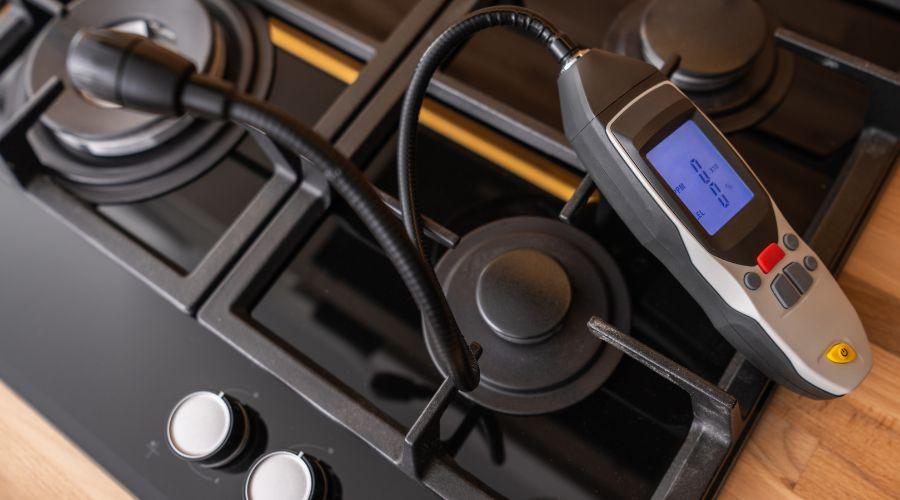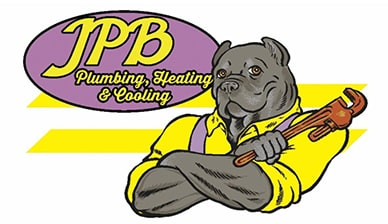Stay Safe From Dangerous Gas Leaks by Identifying Them Quickly
Gas leaks can be difficult to detect, posing potential risks to household safety. Unusual odors or faint hissing sounds near appliances may indicate a problem. This guide provides essential tips on natural gas detection and prevention, helping homeowners take swift action. With expert advice, individuals can identify potential hazards early and address them before they become serious threats.
Strange Smells or Sounds
 Recognizing the warning signs of a gas leak is crucial for protecting both life and property. Natural gas leaks are often identifiable through distinct odors and unusual sounds that should never be ignored. Gas companies add mercaptan, a sulfur compound, to natural gas, creating a strong rotten egg smell that acts as an early warning signal.
Recognizing the warning signs of a gas leak is crucial for protecting both life and property. Natural gas leaks are often identifiable through distinct odors and unusual sounds that should never be ignored. Gas companies add mercaptan, a sulfur compound, to natural gas, creating a strong rotten egg smell that acts as an early warning signal.
One of the most obvious signs of a gas leak is the presence of a distinct sulfur-like smell throughout the home. This odor is intentionally designed to be easily recognizable, and its intensity often reflects the severity of the leak. A stronger smell typically suggests that there are larger or more immediate gas emissions nearby.
In addition to odors, unusual sounds can also indicate a leak. Hissing, whistling, or roaring noises near gas lines or appliances suggest pressurized gas escaping through small openings. Even faint, whisper-like sounds from fittings or valve connections should not be overlooked. If any of these signs are detected, immediate action should be taken following proper safety protocols.
Higher Gas Bill
 An unexplained increase in a monthly gas bill can serve as an early warning sign of a potential gas leak. When gas charges rise unexpectedly despite consistent usage, the utility statement becomes more than just a bill—it acts as a crucial safety indicator. Even small, continuous leaks can cause higher consumption, making regular monitoring essential.
An unexplained increase in a monthly gas bill can serve as an early warning sign of a potential gas leak. When gas charges rise unexpectedly despite consistent usage, the utility statement becomes more than just a bill—it acts as a crucial safety indicator. Even small, continuous leaks can cause higher consumption, making regular monitoring essential.
Tracking utility expenses provides valuable insights into a home's gas system integrity. Many homeowners overlook this warning sign by not consistently reviewing energy costs. Establishing a baseline for typical monthly consumption, whether through a simple spreadsheet or seasonal cost tracking, can help identify abnormal fluctuations. Unexplained increases, especially during moderate weather months, should be investigated.
If a sustained rise in gas charges occurs without a clear reason, contacting the gas provider to verify readings is the first step. Scheduling a professional inspection can help detect leaks before they become hazardous. Many utility companies offer historical data to pinpoint when the increase began. Early detection through bill monitoring not only enhances safety but also prevents unnecessary fuel waste and expenses.
Physical Symptoms
Recognizing the physical symptoms of a gas leak can be crucial in protecting both family members and pets. Natural gas exposure affects the body in various ways, often beginning with mild symptoms that escalate over time. Early warning signs include eye and throat irritation, persistent headaches, and unexplained fatigue. As exposure continues, symptoms may progress to dizziness, nausea, and breathing difficulties that resemble asthma attacks or respiratory infections.
Unexplained health issues that improve when leaving home can indicate household gas exposure. In more severe cases, prolonged inhalation may lead to confusion, memory problems, or even loss of consciousness. Children and elderly individuals are particularly susceptible, often showing symptoms at lower exposure levels than healthy adults. If multiple household members develop similar symptoms simultaneously, seeking immediate medical attention is essential.
Pets can also act as early warning signs due to their heightened sensitivity to airborne toxins. Common indicators of gas exposure in animals include lethargy, vomiting, breathing difficulties, and appetite loss. Dogs may exhibit restlessness or whining, while cats might hide more frequently or display respiratory distress. According to the American Veterinary Medical Association, approximately 15% of pet poisoning cases involve household toxins such as natural gas and carbon monoxide. If pets show unusual symptoms while household members feel fine, their reactions could signal an undetected gas leak requiring urgent attention.
About Jeffrey Burke Plumbing, Heating & Cooling
Jeffrey Burke Plumbing, Heating & Cooling is a family-owned business in Bound Brook, NJ, offering expert plumbing, heating, and cooling services. With 24/7 emergency support, flat-rate pricing, and top-quality brands, they ensure reliable solutions and customer satisfaction. For a top-notch gas leak detection service in Bound Brook, NJ, call today!







